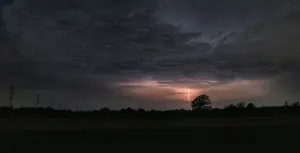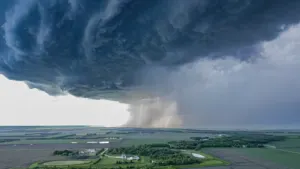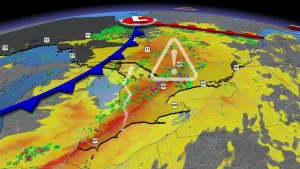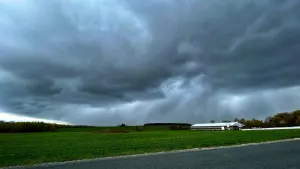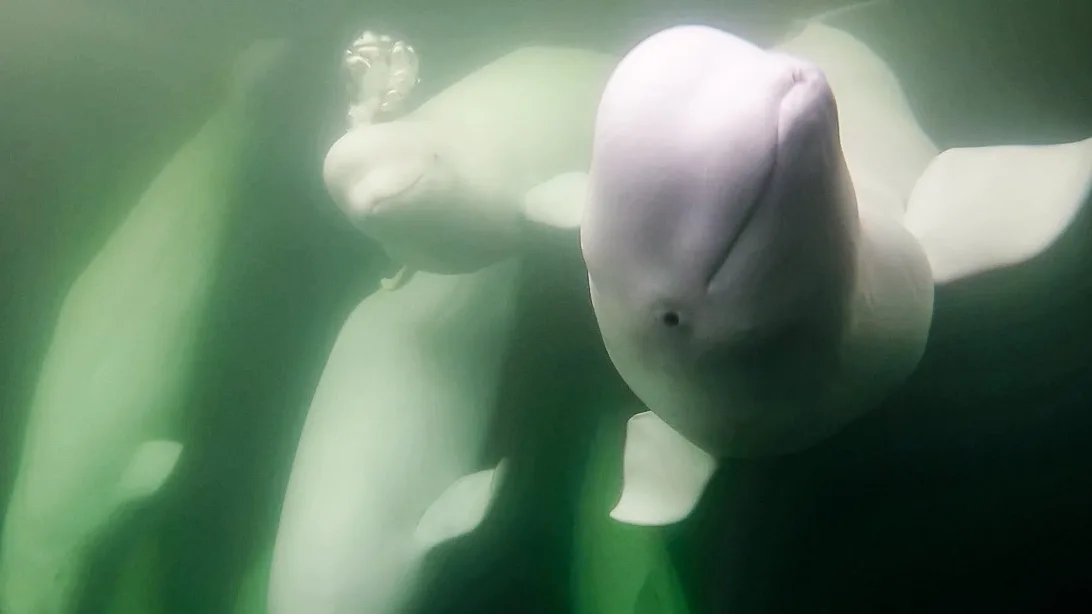
"Really striking": Thousands of belugas make their migration through Canada
Increased Arctic exploration for human activity as well as rising global temperatures are future risks to beluga whale populations.
Each summer beluga whales make their southward migration from the Arctic into lower regions of Canada, such as Hudson Bay and even the St. Lawrence River.
Around 55,000 belugas will travel down the Churchill River into Hudson Bay, which local communities say is an incredible event to witness, yet many are unfamiliar with these enormous animals.
“Belugas are really cool because they're really striking in their coloration, they're bright white. They are also really social. They ‘talk’ a lot underwater, it's just constant tweets and whistles and clicks and bangs,” said Dr. Stephen Petersen, director of conservation and research for Canada's Assiniboine Park Conservancy.

The round structure on a beluga whale’s forehead is called a “melon.” (Madison Stevens/ Polar Bears International)
Despite their uniqueness and considerable population size, scientists say that there are some concerning impacts that climate change may have on belugas as the planet warms.
“Within Canada and the U.S., we have a few populations that are really not doing well. The ones that I'm most familiar with in Canada were historically harvested by Europeans for oil, so their numbers got really low. They haven't really recovered from that, even though it's been a couple of hundred years,” said Petersen.
However, Petersen noted that there are some beluga populations that are healthy and stable. This variation is similar to the polar bear species, where some populations are thriving while others are declining.
WATCH: Beluga greets Newfoundland kayaker, reaction is pure joy
Warming global temperatures and thawing Arctic landscapes will eventually place strain on all beluga populations as sea ice helps shield belugas from being hunted by killer whales. Future human activity is also a concern for this species.
“There are lots of eyes on the Arctic for developing fisheries and more oil and gas drilling. There's a lot of concern about those sorts of pressures that the beluga will be facing.”
According to the IUCN Red List, belugas are Near Threatened, which means that they are close to qualifying as Critically Endangered, Endangered, or Vulnerable in the future.
Thumbnail image: Beluga whales (Madison Stevens/ Polar Bears International)








